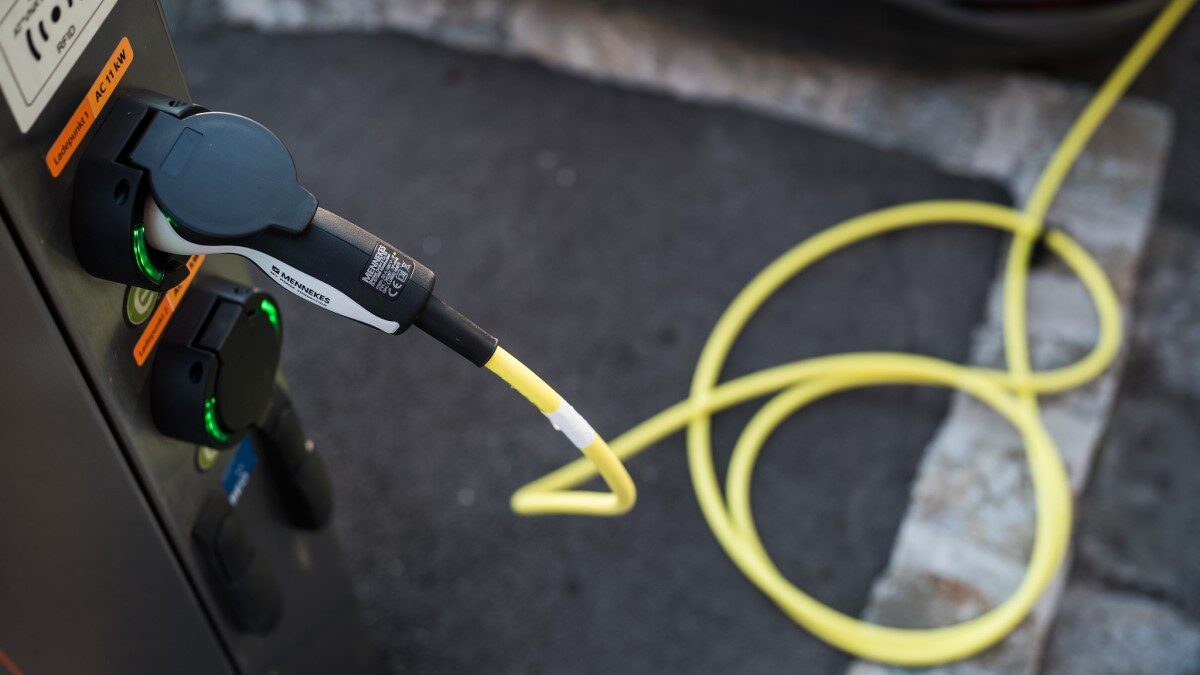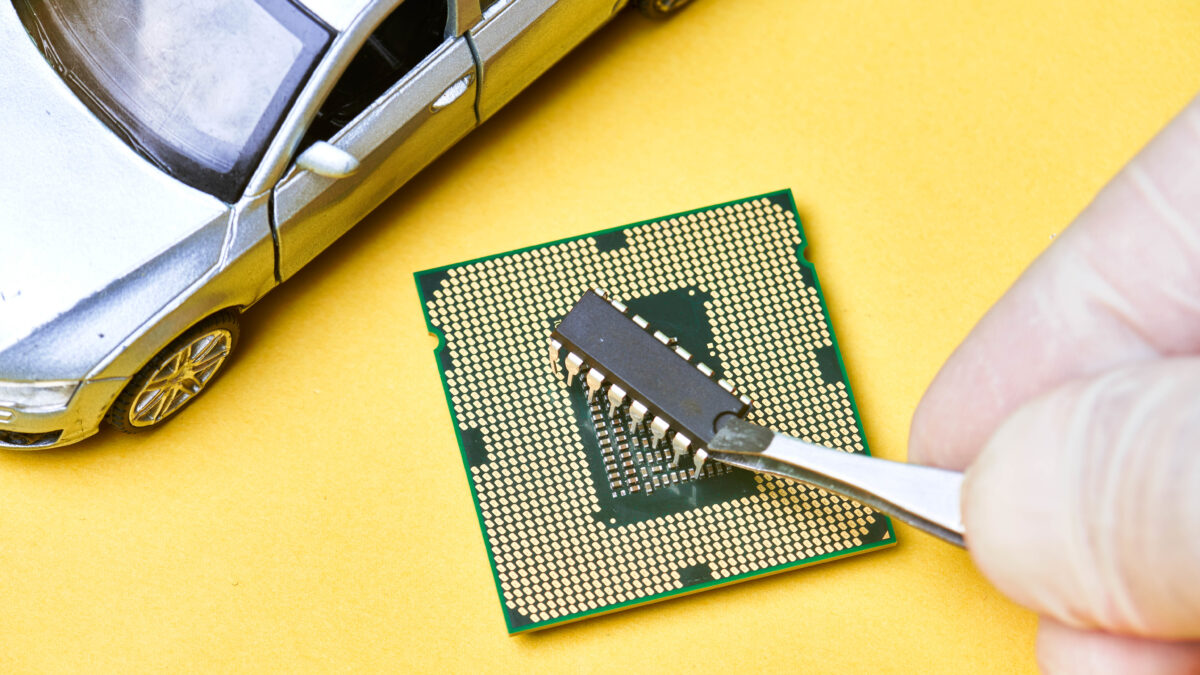Ford Motor Company recently announced it’s set to lose more than $6 billion on its latest electric vehicle plants while it gets them running, with the company CEO saying “we cannot continue to import batteries and rare earth from overseas.”
“We can build all the plants, but what’s the good if we’re importing batteries?” he continued, highlighting U.S. mine closures and global shortages of the rare earths required for the batteries that power these cars.
Joe Biden declared war on fossil fuels on his first day in office. The federal government has adopted numerous policies to swiftly move our nation away from gas-powered vehicles to all-electric ones.
Yet the Biden administration appears entirely unaware of the hard realities of such a major infrastructure shift. In a recent congressional hearing, Biden Interior Secretary Deb Haaland couldn’t answer basic questions about the dearth of crucial materials for EVs due to foreign monopolies on mining and the administration’s antipathy to U.S. energy independence.
Due to government subsidies and regulations, electric car manufacturers are popping up in the U.S. to construct multibillion-dollar assembly plants planned to turn out 150,000 to 250,000 electric vehicles (EVs) per year. Electric battery plants are co-locating to produce the massive batteries for these EVs, aided by federal and state incentives. Batteries account for 20-40 percent of an EV’s cost.
Battery manufacturers initially believed government anti-gas policies would create an unprecedented business opportunity and enable them to meet the EV manufacturers’ needs. But it has become apparent that the battery manufacturers may not control their own destinies. Sourcing the rare-earth elements in the quantities necessary to stamp “Made in America!” on those enormous batteries may mean these billions of dollars being shuffled around will go toward producing far fewer cars than currently promised. That means the entire enterprise could be another giant taxpayer-sponsored boondoggle.
China Monopolizes Key Inputs for EV Batteries
EV batteries require nine elements, here listed in order of proportion: graphite, aluminum, nickel, copper, steel, manganese, cobalt, lithium, and iron. Almost all of these elements that will be needed in massive quantities to produce a U.S. electric-vehicle boom are controlled by foreign countries, especially the top U.S. adversary, China. Mining is a major business operation that requires years to develop, at high business risk, and the United States controls few of the needed raw materials for EVs.
China mines and refines 82 percent of the world’s graphite. It also consumes one-third of the graphite extracted by the world’s next largest supplier, Madagascar. There has been no graphite mining in the United States since the 1950s, and plans for opening any mine are far off.
China produces nearly 60 percent of the world’s aluminum, and all other producers pale in comparison. Aluminum is used in an enormous number of product applications, and almost all of the U.S. needs are met by imports, primarily from Canada. But it’s likely only China can provide the quantities necessary for mass EV battery production. Potential increased production from South America is meeting stiff environmental opposition.
Approximately 50 percent of the world’s available nickel is mined in Indonesia and Australia, with several other countries providing the bulk of the balance, including Russia. The United States’ sole nickel mine will be exhausted by 2026, so all processed nickel for EVs must be imported unless the federal government approves building another, which will take years to get running.
The future of nickel mining for EVs is questionable due to environmental and health concerns. A recent Guardian article described nickel mining as “plumes of sulphur dioxide choking the skies, churned earth blanketed in cancerous dust, rivers running blood-red” and causing considerable opposition from environmental activists.
The U.S. is a top-five producer of copper, so that metal can likely be sourced domestically. The U.S. is also a top-five producer of steel yet still imports almost 20 percent of its needs before adding the demand from EV production.
China’s output is more than 10 times the United States’ and larger than the rest of the entire world’s steel production combined. U.S. imports sourced from China, the world’s top producer, are insignificant, although the United States imports approximately one-fifth of its steel annually.
Manganese is sourced globally primarily in South Africa, Gabon, China, and Australia. China has invested heavily in obtaining control of mining rights in Africa, Australia, and South American countries where preliminary investigations show extensive deposits.
As much as 70 percent of cobalt mining occurs in Congo, and Australia, Russia, and Canada account for much of the balance. Again, China has invested in companies with mining rights in Congo.
Iron (ore) extraction is led by Australia, Brazil, Russia, and China, while mining in the U.S. produces just a small fraction of the global total. Even though China is a top producer of iron ore, its manufacturing needs are so great that it has agreements in place to purchase approximately 70 percent of all global exports of the mineral.
Lithium constitutes just 3 percent of EV battery components. However, the United States has only one operating mine, producing less than 2 percent of the global supply. As a result, the vast majority of lithium is obtained from Australia and South America.
China is also a top-five lithium producer. It has also bought into lithium operations in these countries, as well as the potential “Lithium Triangle,” incorporating the South American countries of Chile, Argentina, and Bolivia. So China effectively controls the majority of lithium sources.
While Democrats Talk, China Dominates
This background on the sources of battery components provides a complete picture of their availability, as well as the major obstacle to domestic EV battery manufacturing. Beyond copper and steel, that obstacle, in a word, is “China.”
China either directly controls the battery components or has secured long-term agreements with their respective producers to effectively control the markets for its necessary metals. It therefore can essentially dictate if, and at what cost, it will allow any competition.
As a result of how China has positioned itself in any major transition to electric vehicles, it could not only be the world’s exclusive EV battery manufacturer, but it could very well be the sole manufacturer of the EVs themselves. That also means U.S. companies moving forward with projects like those that have recently been announced could end up with billion-dollar enterprises that are empty shells.
This all means Democrats’ highly expensive environmental policies have been developed without any meaningful strategic thinking or analyses about raw materials and geopolitics. Neither do they seem to have given any thought to where the additional electrical power will come from when millions of EV owners plug in to recharge.
Democrats’ demanded shift to EVs requires strip mining land, contaminating nearby rivers, streams, and groundwater, and polluting the air due to extracting in many poor countries the minerals necessary to power this EV system. Democrats overlook or dismiss the human toll resulting from forced labor in China and child labor in Africa used to mine the battery components for EVs.
Endangering U.S. Security and Economy
Beginning with the passage of the China trade bill in 2000, U.S. leaders’ arrogance and ignorance have enabled China to grow to now threatening our position as the world’s superpower. China used its trade surplus from us buying their cheap junk to build a navy larger than ours, including a new base in the middle of the South China Sea to support its expanded fleet.
Any military conflict involving China and Taiwan, or even a trade blockade, would immediately disrupt the world’s economies. The island nation manufactures 65 percent of all microchips and as much as 90 percent of the world’s advanced microprocessors. This means the manufacture or assembly of nearly all electronics will come to an abrupt halt with such an attack.
Depending on the likely feckless U.S. response, China could also withhold its shipments of certain medical products and pharmaceuticals to the United States. Many are life-sustaining antibiotics that the United States also depends on China to produce. That would be “checkmate” for us.









